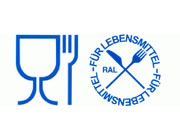 In September 2005, the new German food and food supplies to brought by LFGB food and daily necessities LMBG method. It is also known as the food, tobacco products, cosmetics and other daily necessities Act was German food health management of the most important basic legal documents, and other special food sanitation laws, regulations, guidelines and core. However, in recent years there has also been modified, and European standards to match. Regulations on German food in all its aspects did a total and fundamental provisions, all in the German market, food and all food-related products must conform to the basic provisions above it. The products are tested in conformity with the German food and daily necessities Act article 30 and article 31, you can get accredited by LFGB testing report proved to be "not containing products of the chemical or toxic substances";and sale in the German market.
In September 2005, the new German food and food supplies to brought by LFGB food and daily necessities LMBG method. It is also known as the food, tobacco products, cosmetics and other daily necessities Act was German food health management of the most important basic legal documents, and other special food sanitation laws, regulations, guidelines and core. However, in recent years there has also been modified, and European standards to match. Regulations on German food in all its aspects did a total and fundamental provisions, all in the German market, food and all food-related products must conform to the basic provisions above it. The products are tested in conformity with the German food and daily necessities Act article 30 and article 31, you can get accredited by LFGB testing report proved to be "not containing products of the chemical or toxic substances";and sale in the German market.
I. LFGB certificate and fork flag meaning
Knife and fork logo is a food safety signs. In contact with food on a daily, if you have a knife and fork logo, it means the product has been tested with many German and European standards, compliance with regulatory requirements, Germany LFGB certificate does not contain harmful to the body of toxic substances that can, in Germany and other European and American market. On the European market, and fork logo products can enhance customer confidence and the desire to buy is a powerful marketing tool that greatly increased product competitiveness in the market.
2, LFGB certificate covers a range of products
LFGB testing for all materials, including with the latest technology products, such as: barbecue rack for chrome plating, Teflon coated cooking pan resistance test, silicone seals in a kettle. Typically involved in areas including: ceramic, composite, plastic, PVC, plasticizer, paper products, leather, textiles, cosmetics, tobacco, etc. The products include: bun sandwich heaters, electric kettle, electrical contact with food products; food products; tempered glass cutting board, stainless steel pot, kitchen utensils, dishes, knives, spoons, created a kind of tableware; clothing, bedding, towels, hairpieces, false eyelashes, hats, diapers and other sanitary items, sleeping bags, shoes, gloves, straps, handbags, purses/wallets, briefcases, Chair coated materials; textile or leather toys hash containing textile or leather garments of toys; direct use of yarns and fabrics; all kinds of cosmetic products and tobacco products.
3, the LFGB authentication includes test item
Under normal circumstances, LFGB Germany "Food and Commodity Act" 30th and 31 include the following test items:
1. The initial testing of samples and materials
2. Odor and taste transfer of sensory evaluation
3. Plastic sample: You can transfer component testing and the testing of heavy metals can be precipitated
4. Metal: composition and precipitation of heavy metals can be tested
5. Silicone resin: can be transferred or volatile organic compounds test
6. Special Materials: According to German law test chemical hazards of chemicals
4, laws and regulations, including the other test items include:
1. Textiles, leather, polyester fiber and other commodities on the use of certain azo dyes for detection.
2. Cosmetics harmful chemical composition and heavy metal testing
3. Harmful components of tobacco in the test
5, LFGB certification process
1. Consulting – Product information provided by the applicant to provide samples
2. Quote – samples provided by the applicant, the product engineers to assess, identify test items, and to apply for quotation
3. Applicant to accept offer
4. Conclude a contract signed
5. Sample Test – test will be conducted in accordance with the applicable standards
6. The test report
7. Issue a certificate of compliance LFGB test
6, the new regulations Important changes:
- In German law, the implementation of EU directives NO.178/2002 (food safety requirements, food and catering operator responsibility)
- Tobacco outside the scope of the new LFGB will be issued temporary regulations on tobacco
- In contact with food material and misleading statements prohibited goods expanded
- In contact with food product safety testing of materials and no significant change





